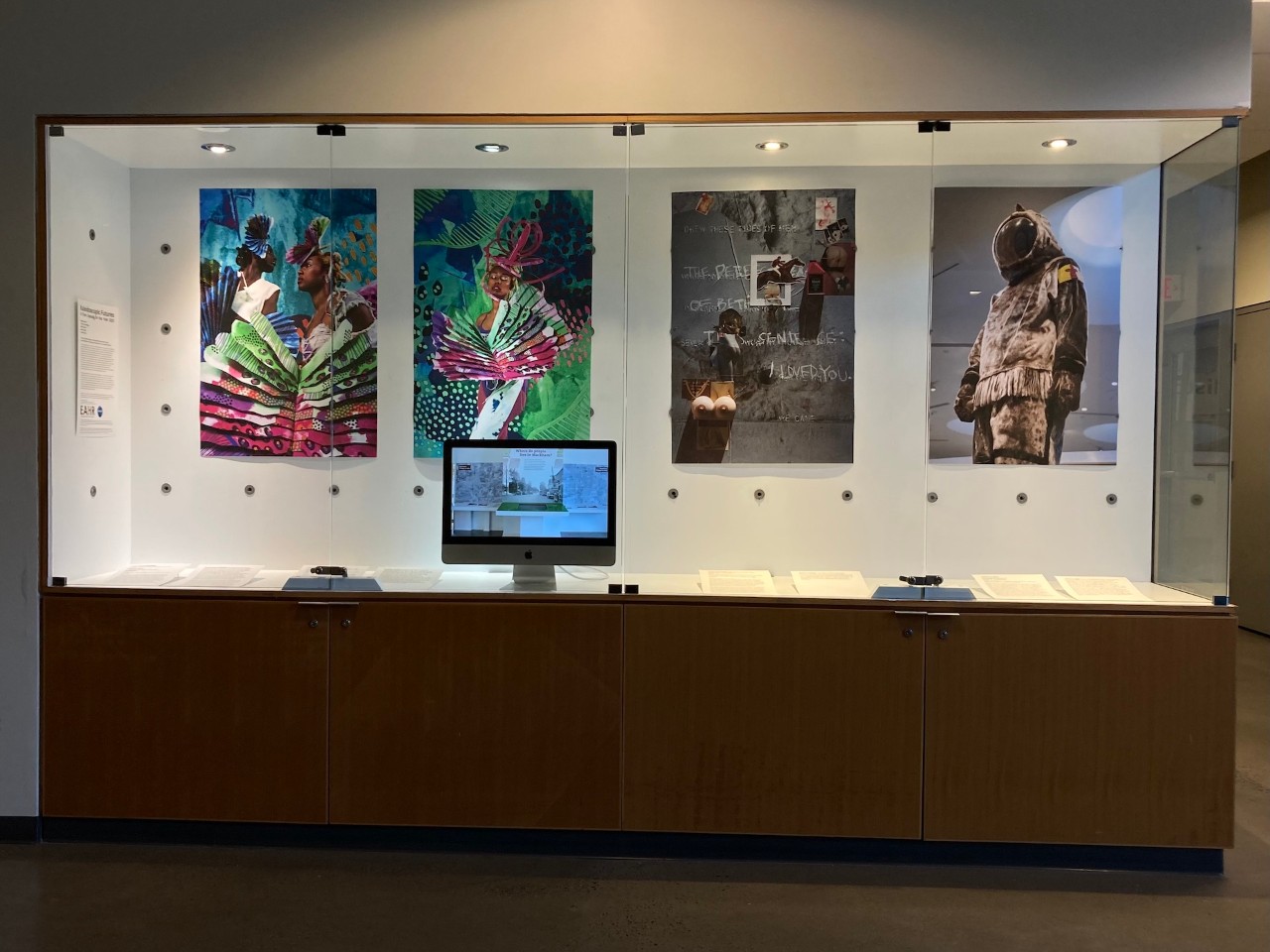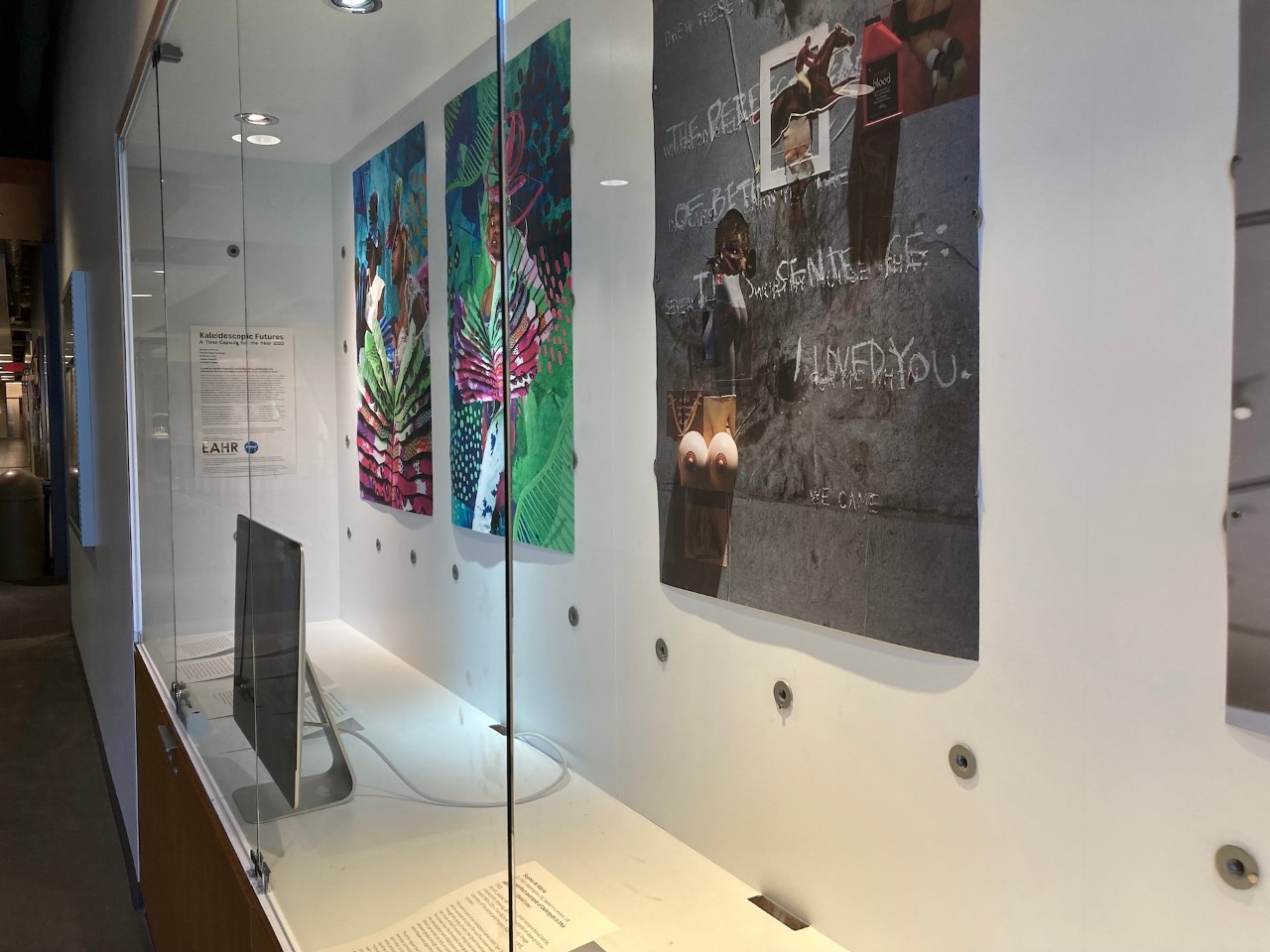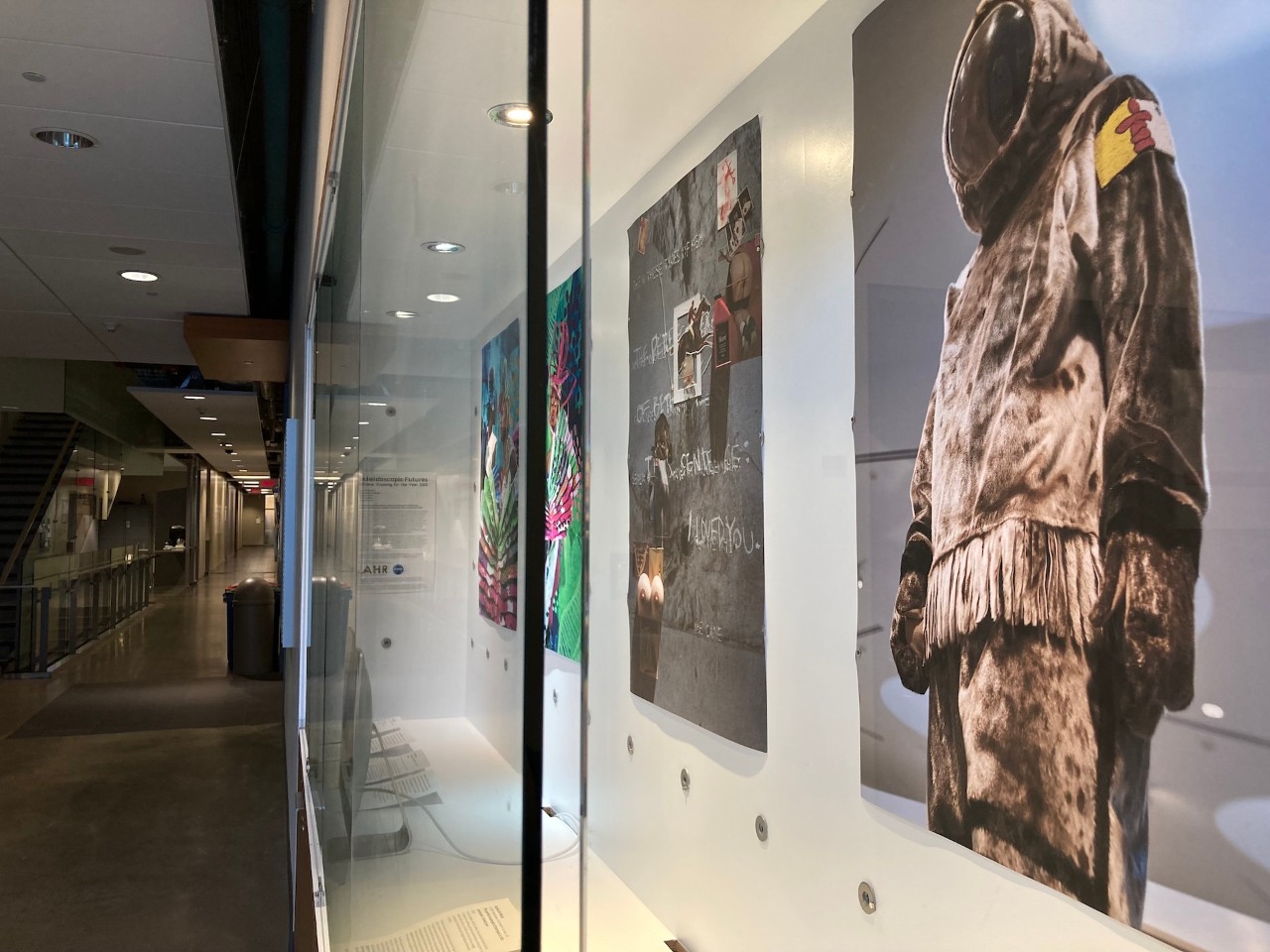Kaleidoscopic Futures: A Time Capsule for the Year 2222
February 6 - April 3, 2023
Featuring works by
- Sophia Al-Maria
- Yannis Davy Guibinga
- Pauline Loctin
- Jesse Tungilik
- Camille Turner
Curated by Salvatore Magliocca, Xaviera Meza-Wong, and Nicholas Linh,
with texts by Maria Aouad, Meghan Leech, Shanen Louis, and Béatrice Poulin
What do you see when you look towards the future? Whether it be an idyllic dream or a dystopian nightmare, the uncertainty sparks imagination. Camille Turner’s TimeWarp (2013), a continuation of her Final Frontier series, uses archival research to challenge national narratives and insert Black Canadian histories. Sophia Al-Maria’s The perfect example of betrayal is this sentence: I loved you (2022) critiques mechanised relationships and A.I. by relating it to the Orientalist alienation and fetishization of Arab and Asian women. Jesse Tungilik’s Sealskin Spacesuit (2019) reimagines dominant sci-fi narratives by portraying Indigenous people in space. Drawing from personal history, Tungilik reinterprets the insulating qualities of sealskin as fitting for spacesuits, fashioning a future where Indigenous people voyage among the stars as well. Yannis Davy Guibinga and Pauline Loctin’s Pterygota (2021) take inspiration from the splendour and imagination of nature. Loctin’s vibrant paper sculptures create a surreal universe for Guibinga’s Black body in this reinterpretation of traditional photographic portraiture.
What will the year 2222 look like? Will astronauts in sealskin suits, as imagined by Tungilik, orbit around the colourful world of Pterygota? Or will humanity march across a toxic wasteland, searching, starry-eyed, for a new home? Will systems of oppression ever fade into obsolescence or be reinforced by algorithmic biases and A.I. technologies? To open two hundred years from now, this time capsule exhibition brings together artworks reflecting only a few of the currents of thought and hopes for the futures of Indigenous, Black, and people of colour. The works are a product of their times—our now, but they are also intended to encourage a generation of tomorrow to live for change for the better.
Presented by the Ethnocultural Art Histories Research Group (EAHR) in collaboration with students of EAHR Faculty Advisor and Professor Alice Ming Wai Jim’s ARTH 389: Issues in Ethnocultural Art Histories: Ethnic Futurisms and Contemporary Art (fall 2022) for the Department of Art History Vitrine Display, Concordia University, 20 March - 6 April 2023.
EAHR’s activities are made possible with the support of The Gail and Stephen A. Jarislowsky Institute for Studies in Canadian Art, Concordia University Research Chair in Ethnocultural Art Histories, and the Department of Art History, Concordia University. Additional support for this exhibition has been provided by the Afrofuturisms Research Collective.
We acknowledge that Concordia University is located on unceded Indigenous lands. The Kanien’kehá:ka Nation is recognized as the custodians of the lands and waters on which we gather today. Tiohtià:ke/Montréal is historically known as a gathering place for many First Nations. Today, it is home to a diverse population of Indigenous and other peoples. We respect the continued connections with the past, present and future in our ongoing relationships with Indigenous and other peoples within the Montréal community.
Editing: Dr. Alice Ming Wai Jim
EAHR Coordinators: Kate Bursey and Meghan Leech
Department of Art History Vitrine Coordinator: Caroline DeFrias



